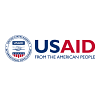US fund freeze hits development projects in Bangladesh
Thousands of Bangladeshi development professionals face uncertainty as US government-funded projects have been halted following an executive order by the Trump administration on January 20.
Though the order mandates a 90-day review, many employees have already been terminated, and all project activities have come to a standstill. The USAID website has also gone offline.
Project personnel have been advised to avoid office visits. In some cases, staffers attend offices to maintain appearance but are not engaged in any work.
Authorities have instructed employees not to comment publicly on the executive order or its implications, said a diplomatic source.
"We hope that the new US administration will make a positive decision after the review."
"We come to the office but spend time on social media or learning new skills," said a mid-level official of a USAID-funded project in Dhaka. "The uncertainty is frustrating."
Another project official said they had been told to work from home but had no actual tasks. "We don't know if we will still have jobs after the 90-day period."
The executive order comes amid Bangladesh's economic struggles, including high inflation and foreign currency challenges due to high foreign loan repayments.
The country, which is undergoing a political transition following Sheikh Hasina's removal from power, faced floods and cyclones that damaged crops and rendered many people displaced.
According to the Bangladesh Bureau of Statistics, 2.66 million people were seeking employment as of September 2024, a 6 percent increase from the previous year. Inflation remains close to 10 percent, further burdening ordinary citizens.
The fund cuts against such a backdrop are likely to add insult to injury, said development experts.
AKM Jashim Uddin, director of the Association of Development Agencies in Bangladesh (ADAB), warned of widespread consequences if US funding is curtailed.
"We hope that the new US administration will make a positive decision after the review," he said.
According to the Economic Relations Division, the US disbursed $450 million for 96 development projects last year.
Officials fear funding for projects focused on gender, LGBTQ rights, immunisation, health, and climate change could be discontinued as Trump withdrew from the World Health Organization and the Paris Climate Agreement.
An estimated 20,000 professionals work in US-funded projects across Bangladesh. Additionally, vendors, dealers, and several million beneficiaries could be affected by a prolonged aid freeze.
Already, icddr,b has sacked over 1,000 employees, mostly from a USAID-funded tuberculosis project. The US State Department also suspended funding for Asian University for Women's (AUW) Afghan students, jeopardising their education.
"There are about 550 Afghan students enrolled, with 330 more expected. We are in real trouble," AUW Vice-Chancellor Rubana Huq told The Daily Star. The university has made a public appeal for alternative funding to sustain education for the Afghan students.
SHRINKING DEV SECTOR
According to the NGO Affairs Bureau, aid for the NGOs has been on the decline for several years.
The foreign aid that was $945 million in 2019 came down to $741 million in 2023, it said.
NGO officials highlighted that most jobs in the development sector are contractual and project-based and have limited end-of-service benefits.
"The sector was already shrinking. If the US cuts funding, the impact will be severe," said an NGO official.
Over 50 percent of NGO funding in Bangladesh comes from the US government, the official added.
STRATEGIC SHIFT
The previous US administration under Joe Biden had been critical of Sheikh Hasina's government over human rights concerns and election irregularities. It had also welcomed the interim government led by Prof Muhammad Yunus, pledging support for the transition.
However, the Council on Foreign Relations (CFR), a US-based think tank, cautioned that Trump's decision to freeze aid could push Bangladesh closer to China.
In a January 29 article, CFR's senior fellow Joshua Kurlantzick noted that interim leader Prof Yunus is committed to reforms, and cutting aid now could set back a major success story.
Beyond development setbacks, the move could have geopolitical ramifications. Bangladesh, a strategic country, may turn to China for financial support if US aid remains suspended, he wrote.
Kurlantzick said that before Hasina's ouster, Bangladesh had strong economic and strategic ties with China, while maintaining friendly relations with India. If the US disengages, Beijing is likely to step in with increased investments and loans.
China has already backed several Belt and Road projects in Bangladesh and extended support to the interim government. Following the US aid freeze, Dhaka has intensified efforts to strengthen bilateral relations with Beijing.
Kurlantzick warned that such a shift would undermine US regional influence. "If the US abandons Bangladesh, China will seize the opportunity, altering the balance of power in South Asia."
The next 90 days will be critical in determining the fate of US-funded projects and Bangladesh's broader geopolitical alignment.
Transparency International Bangladesh Executive Director Iftekharuzzaman said Trump's abrupt and indiscriminate way of reviewing foreign aid is an "unprecedented disgrace" for the Paris Declaration on aid effectiveness, especially the principle of mutual accountability for international development aid donors and recipients.
He said he hopes that good sense will prevail on Trump's review team to recognise that development assistance is as much a token of burden-sharing for global developmental injustice as it is a means of promotion of shared values and objectives.

 For all latest news, follow The Daily Star's Google News channel.
For all latest news, follow The Daily Star's Google News channel. 







Comments